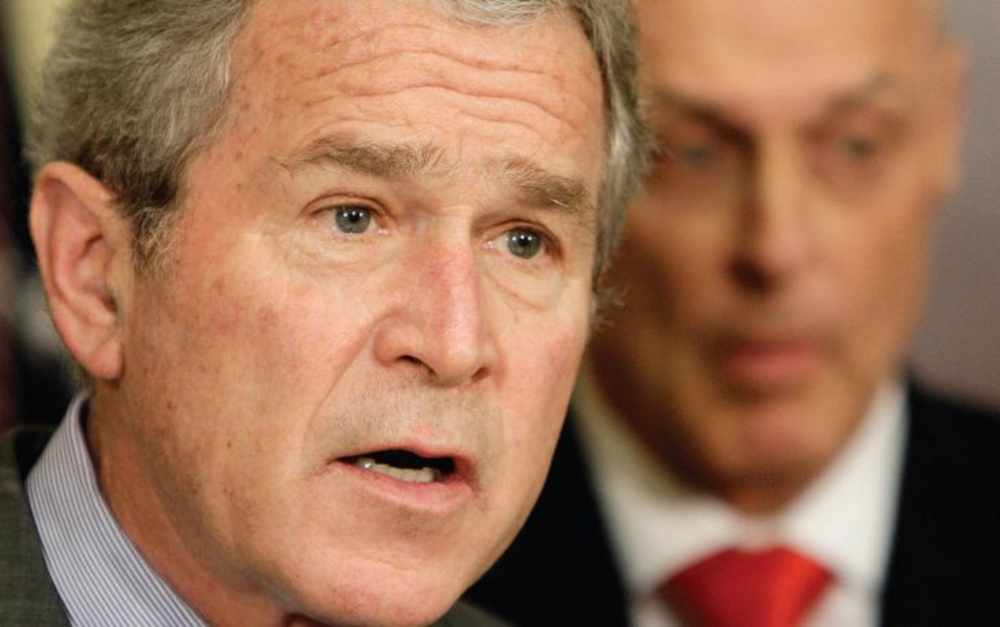As the President and Congress are in talks over a $140 billion economic stimulus plan, the National Retail Federation board of directors is calling on these government officials to provide a relief package for retailers.
After the board’s meeting at NRF’s 97th Annual Convention in New York last week, members unanimously adopted a resolution to petition the government emphasizing that consumer spending represents 70% of the US economy and calling on lawmakers to act quickly. Last week the NRF wrote to President Bush and both Democratic and Republican leaders of Congress asking for quick action.
“An economic stimulus package would benefit retail sales, which have been hurt by the weakened economy,” said Rachelle Bernstein, VP of tax counsel at the NRF. “It would increase consumer confidence in spending and benefit the 25 million people who are employed in the retail industry.”
In a statement, Tracy Mullin, president/CEO of the NRF said, “Consumer spending…has fueled our economy for the past decade. We agree with economists who say the fastest way for a stimulus to enter the economy is through the consumer.”
The NRF decided to act after holiday sales were lower than expected — only $469.9 billion, a 3% increase over last year but still short of the NRF’s earlier prediction of a 4% increase for November and December. The increase was the lowest since 2002, when holiday sales rose 1.3%.
The NRF’s letter was delivered to President Bush, House Speaker Nancy Pelosi (D-CA), Minority Leader John Boehner (R-OH), Senate Majority Leader Harry Reid (D-NV), and Minority Leader Mitch McConnell (R-KY). It called for economic stimulus legislation but did not endorse any specific legislation or proposal.
The NRF hopes that the relief process will be targeted and expedient. “We would like the president and Congress to work together in a bipartisan way to make a simple and quick action to help stimulate the economy,” said Bernstein. “It is important that a plan is instituted in a timely fashion and not bogged down in the political process.”
Anne Roman, a Borders spokesperson, said that “as a retail organization, Borders would of course be in favor of any economic stimulus package that would put dollars in the hands of consumers.”
The NRF expects that the nation’s economy will be under continued financial stress in 2008 as a result of high energy costs, the housing slump, and the nation’s failure to produce more new jobs and income growth.
Last Thursday President Bush, Treasury Secretary Henry Paulson, and Congressional leadership held a conference call to discuss the issues, and on Friday the President called for a package of tax cuts and offer measures totaling around $140 billion.
“The acknowledgement by the President today of the immediate need for a stimulus package is significant progress,” said Nancy Pelosi, Speaker of the House, in an official statement about the call. “In the next few days, through ongoing bipartisan negotiations, we are hopeful that we will agree on legislation that provides timely, targeted and temporary assistance to America’s middle class.”
The President’s office also said that his administration supports the idea of implementing some kind of an economic stimulus package. There is no official plan of what this proposed economic stimulus package may or may not include.
In the past, economic stimulus packages often included higher federal spending or lower taxes.
In 2001, the House passed a $100 billion economic stimulus package by a slim margin. Democrats against the bill argued that it favored tax cuts for corporations and didn’t benefit citizens left unemployed after 9/11.
President Bush has historically pushed for economic cuts, which he attributes to economic stimulation. Still, Democrats have been concerned that these cuts have only benefited the wealthy at the expense of the nation’s economy. Others are concerned that if the plan involves cutting interest rates, it could lead to further inflation down the road.






